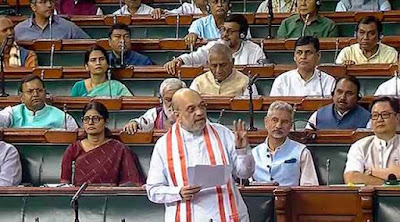Section 500 of the Indian Penal Code (IPC) states that whoever defames another person shall be punished with simple imprisonment for a term which may extend to two years, or with a fine, or with both.
Defamation law in India
Defamation law in India is governed by the Indian Penal Code (IPC) and the Code of Civil Procedure (CPC). Section 499 of the IPC defines defamation, and Section 500 of the IPC states the punishment for defamation. The CPC provides civil remedies for defamation.
Section 499 of the IPC defines defamation as:
Whoever imputes anything to
any person intending to harm, or knowing or having reason to believe that such
imputation will harm, the reputation of such person, is said to defame that
person.
To file a defamation case in
India, you need to follow these steps:
File a complaint with the
police. The complaint should include all the details of the defamation, such as
the defamatory statement, the mode of publication, and the impact it has had on
you.
If the police do not take
action, you can file a private complaint in a magistrate's court.
The court will issue a summons
to the defendant, who will have to appear in court to answer the charges.
If the court finds the
defendant guilty, it can award you damages, injunction, or both.
Here are some additional
things to keep in mind when filing a defamation case in India:
The burden of proof lies on
the plaintiff, i.e., the person who is filing the case. This means you will
have to prove that the defendant made a false statement about you that damaged
your reputation.
The defendant can raise several
defenses, such as truth, fair comment, and privilege.
The court will consider all
the evidence before making a decision.
Defamation is a civil case,
which means that the defendant will not be jailed even if they are found
guilty. However, the court may award you damages to compensate you for the loss
of reputation.
If you are considering filing
a defamation case in India, it is important to consult with a lawyer to
understand your rights and options. A lawyer can also help you draft the
complaint and represent you in court.
Here are some additional
safety guidelines to keep in mind when filing a defamation case in India:
- Make sure that you have sufficient evidence to support your claim.
- Be prepared to face a lengthy and expensive legal battle.
- Be aware of the defenses that the defendant may raise.
- Be prepared to accept the court's decision, even if it is not in your favor.
Recent trends in defamation law in India
In recent years, there has been a growing trend of defamation
cases in India. This is likely due to several factors, including the rise
of social media and the increasing polarization of Indian society.
The Indian Supreme Court has also taken several steps to reform defamation law in India. In recent years, the Supreme Court has ruled that defamation cases should be disposed of quickly and that defendants should be granted bail liberally. The Supreme Court has also ruled that the burden of proof in defamation cases lies on the plaintiff.
Conclusion
Defamation law in India is a complex and nuanced area of law. If you are considering filing a defamation case or defending yourself against one, it is important to consult with a lawyer to
understand your rights and options.
I hope this information is
helpful.







